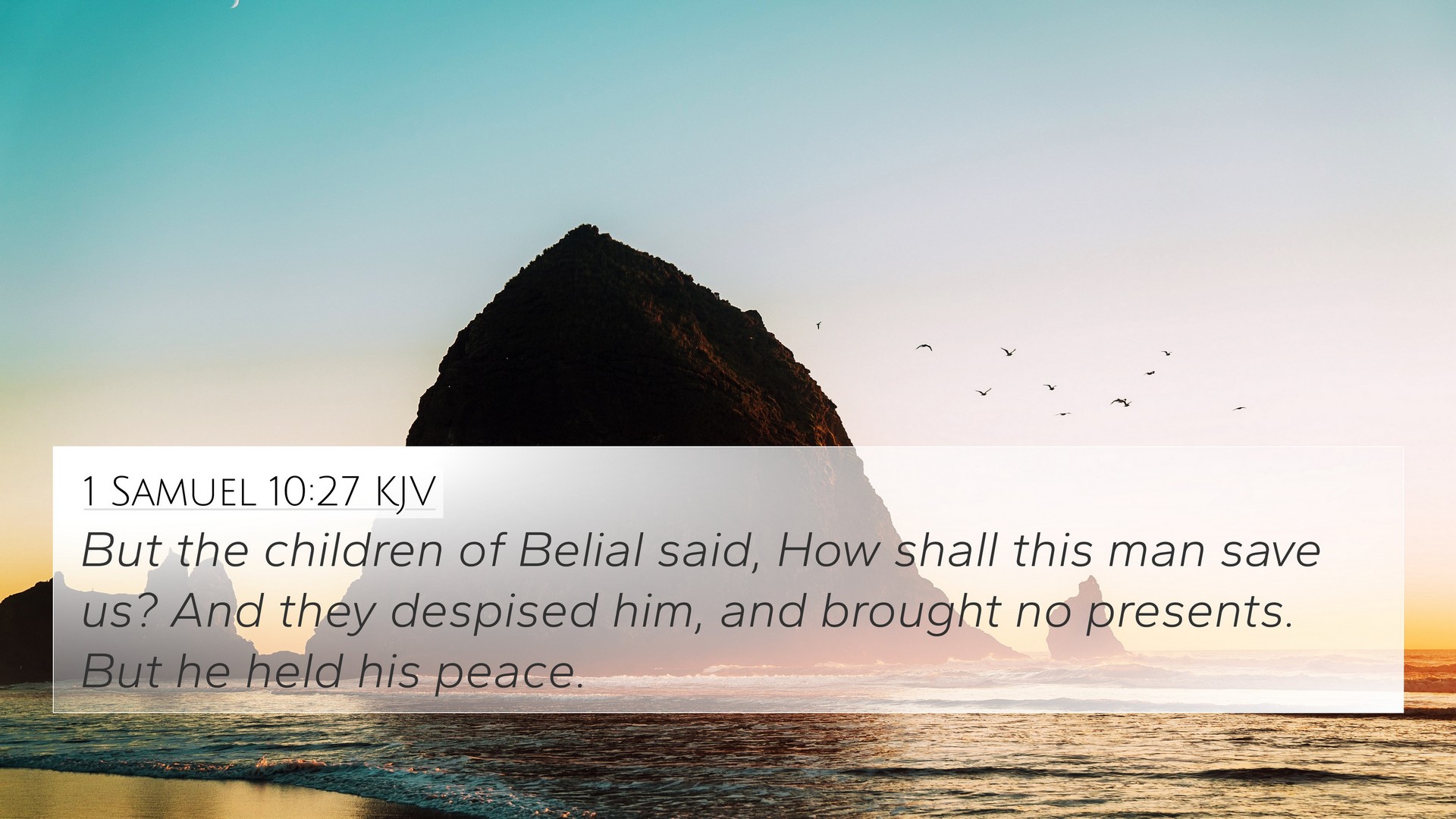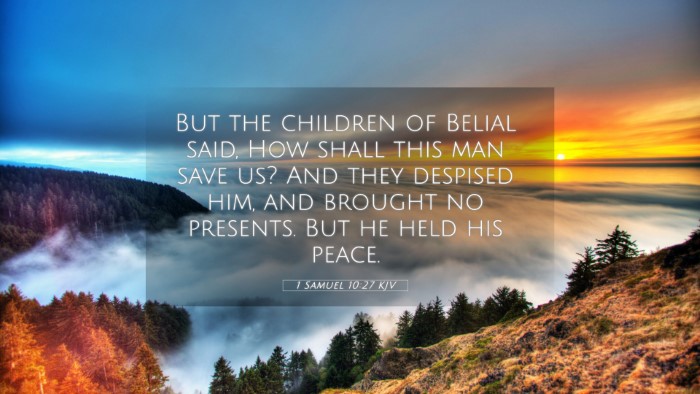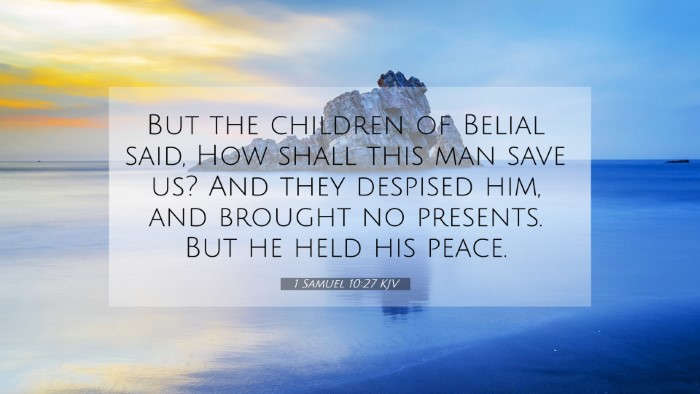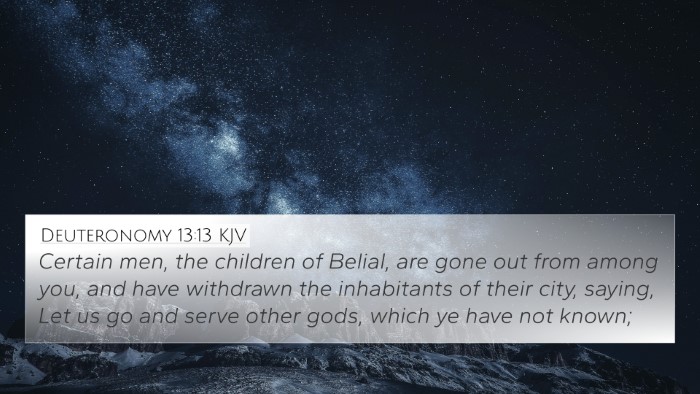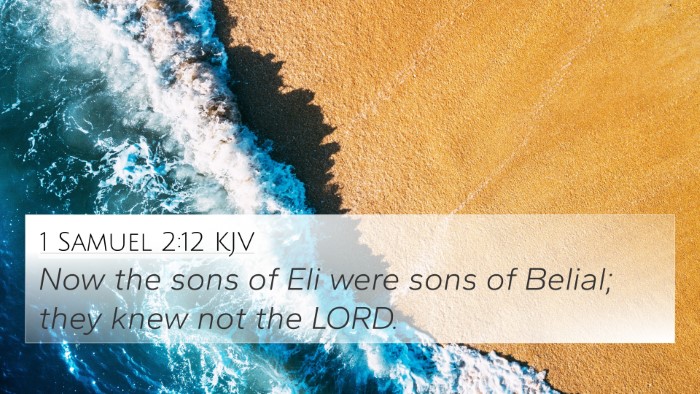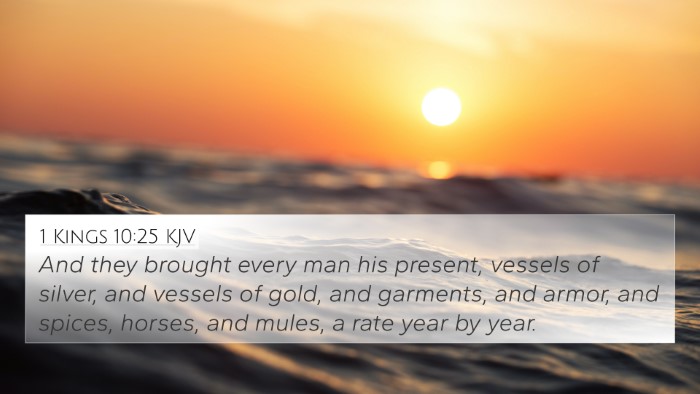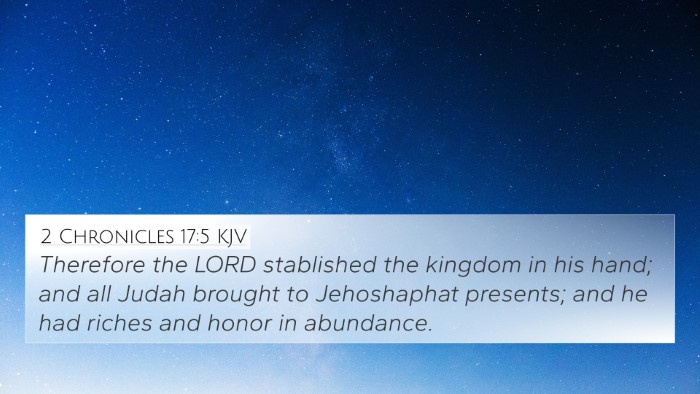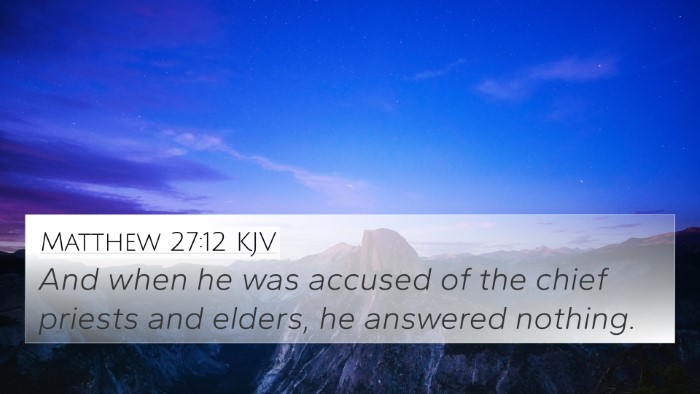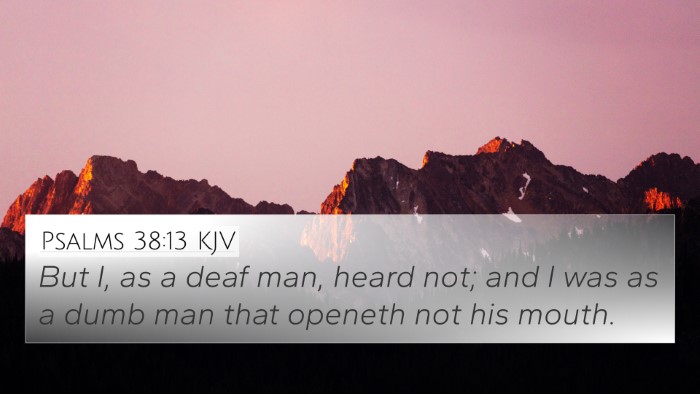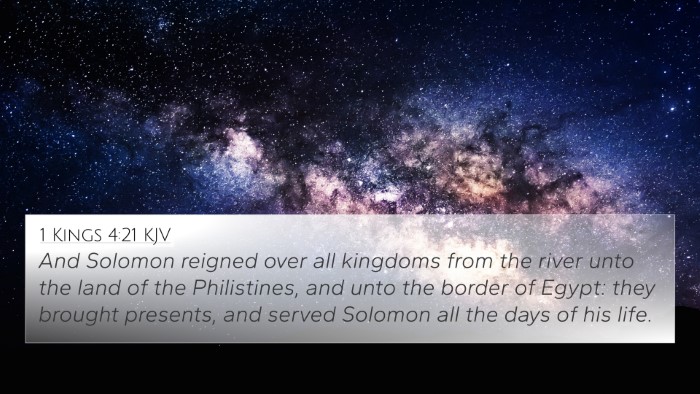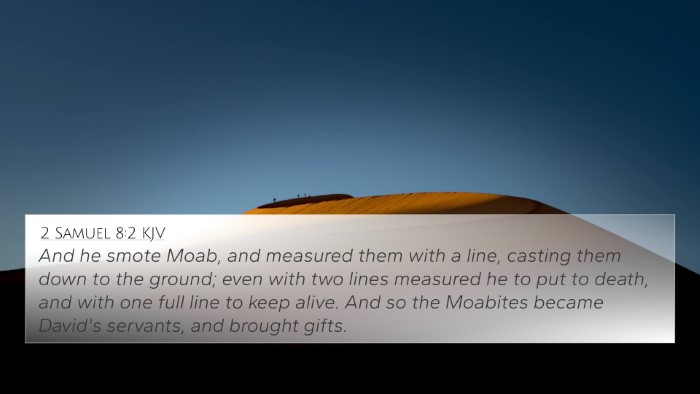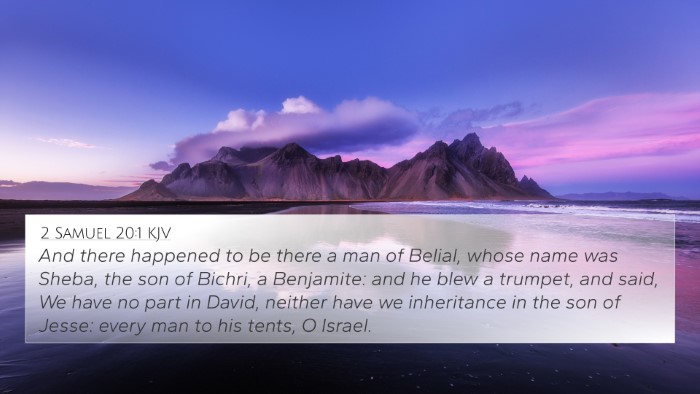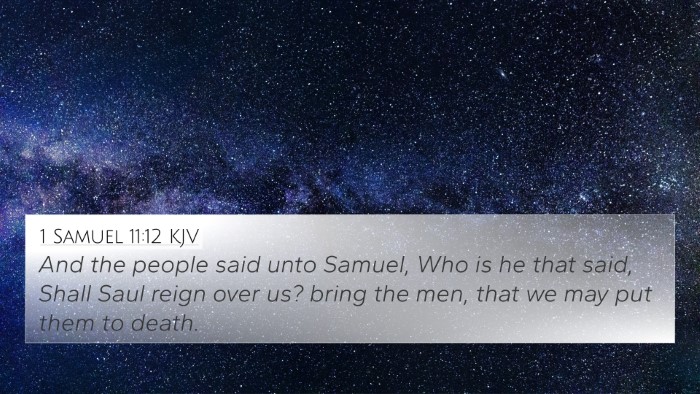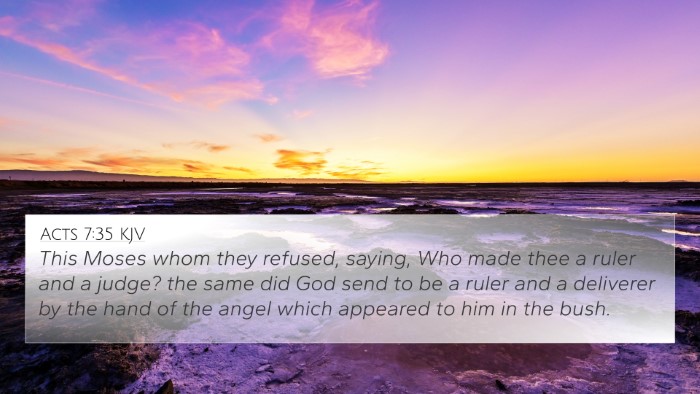Understanding 1 Samuel 10:27
This verse from the Old Testament captures an important moment in the history of Israel, highlighting the response of individuals to God's sovereign choice of a king for His people. The verse reads:
“But some worthless men said, ‘How can this man save us?’ And they despised him and brought him no present. But he held his peace.”
Summary of Meaning
1 Samuel 10:27 reflects the division among the Israelites regarding Saul's appointment as their king. Despite the divine confirmation of Saul's kingship and the signs given to affirm it, some men questioned his ability to lead. They expressed their contempt and failed to honor him, illustrating the skepticism that can accompany new leadership.
Insights from Commentaries
Matthew Henry's Commentary
According to Matthew Henry, this verse illustrates the opposition that Saul faced from those who disregarded him. He notes that those who questioned Saul's legitimacy are labeled as "worthless men," suggesting their character reflects a broader attitude against God’s chosen leadership. Henry emphasizes that Saul's humility is evident as he chose to remain silent in the face of scorn.
Albert Barnes' Notes on the Bible
Albert Barnes explains that the phrase "some worthless men" indicates that there were those who did not consider him fit to reign, showcasing a critical reaction to God's decision. He highlights that these dissenters did not participate in the celebration of Saul’s appointment, choosing instead to mock him, which serves as a reminder of the challenges leaders often face from dissenting voices.
Adam Clarke's Commentary
Adam Clarke focuses on the social implications of this rejection. He highlights that by refusing to acknowledge Saul, these men positioned themselves against not only Saul but against God’s authority. Clarke also remarks on the importance of respecting God's chosen authority, and that Saul's choice to "hold his peace" demonstrates a strength of character and wisdom amidst adversity.
Cross-References to 1 Samuel 10:27
- 1 Samuel 8:7-9: God's response to the people's demand for a king.
- 1 Samuel 9:16: God's proclamation of Saul as king.
- 1 Samuel 10:6: The Spirit of the Lord coming upon Saul as a sign of his anointing.
- 1 Samuel 11:4-5: The people's recognition of Saul's leadership during a crisis.
- 1 Samuel 12:13: Samuel’s acknowledgment of Saul as the king.
- Psalms 75:7: God’s sovereignty in appointing leaders.
- 2 Samuel 6:20-23: Michael’s contempt for David’s worship demonstrates similar opposition.
- Matthew 21:42: The stone rejected by the builders becoming the chief cornerstone, paralleling Saul’s rejection.
- 1 Corinthians 1:27-28: God choosing the foolish and despised things.
- Acts 7:51: A reflection on the attitude of rejection among God's people.
Thematic Connections
This verse draws upon several themes present throughout Scripture, such as:
- Divine Selection: God's sovereign choice in leadership.
- Rejection of Authority: Israel's historical struggle with accepting divine authority.
- Humility in Leadership: The importance of patience and restraint in the face of opposition.
- God’s Sovereignty: The underlying principle that God ordains all authority.
- Faith vs. Skepticism: The challenge of faith in God’s choices amid human doubt.
- Spiritual Blindness: A refusal to see God’s will through skepticism and disbelief.
Significance of Cross-Referencing
Cross-referencing Bible verses enables better understanding and interpretation. It helps in identifying:
- Connections between Bible Verses: Finding parallels and thematic connections enhances interpretation.
- Comparative Bible Verse Analysis: Understanding how similar themes are treated throughout the Bible.
- Bible Concordance: Tools such as a concordance allow for easier identification of related passages.
- Cross-Referencing Bible Study Methods: Engaging with multiple scriptures deepens faith and comprehension.
Conclusion
In summary, 1 Samuel 10:27 serves as a crucial reminder of the divine origin of leadership and the responses it elicits from the community. The insights from respected public domain commentaries help illuminate the complexities of this moment in Israel's history, and the cross-references enrich our understanding of the broader biblical narrative. As you meditate on this verse, consider the themes it encompasses and the connections it fosters with other scriptural texts.
